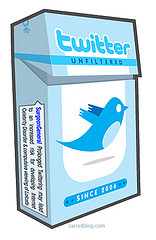Section 230 to Twitter and others: Delete away

Community and content management don't void a site's immunity under Section 230 of the Communications Decency Act. Participation in an unlawful act does.
I was thus taken aback by the legal analysis included in Wired's/Betsy Schiffman's post about Ariel Waldman and Twitter (Twitterer takes on Twitter Harassment Policy):
John Dozier Jr., a managing partner at Dozier Internet Law, says Twitter may have risked its immunity under the Communications Decency Act the moment it "edited" or altered content on the site. (An "edit" could include any sort of alteration, such as promotional placement or displacement on the site.)
"If they've edited content based on their subjective perspective, they put their immunity at risk and virtually their entire online business, because then they'd be liable to defmation [sic] claims or anything else that a publisher would," Dozier says.
What's at stake in the Twitter-Waldman discussion, as I understand it, is not editing or alteration but removal: something squarely protected by Section 230. (To be clear, editing and alteration don't per se void the immunity, either.) As Professor Eric Goldman (a Section 230 scholar and frequent analyst) put it in a recent, unrelated post:
47 USC 230. Many people operate under the outdated myth that a site must choose to be either a publisher or a passive conduit. Fortunately, the law facilitates heterogeneous approaches to UGC. Per 230, a [site owner] isn't liable for third party content with limited exceptions. Ownership doesn't matter; editing doesn't matter, prescreening/policing doesn't matter. ...
Evan Williams and co. at Twitter haven't been invoking Section 230 as a basis for their decision not to remove certain complaint-generating submissions or their author; let's not start doing it for them.
(Image by carrotcreative, CC Attribution-2.0)
